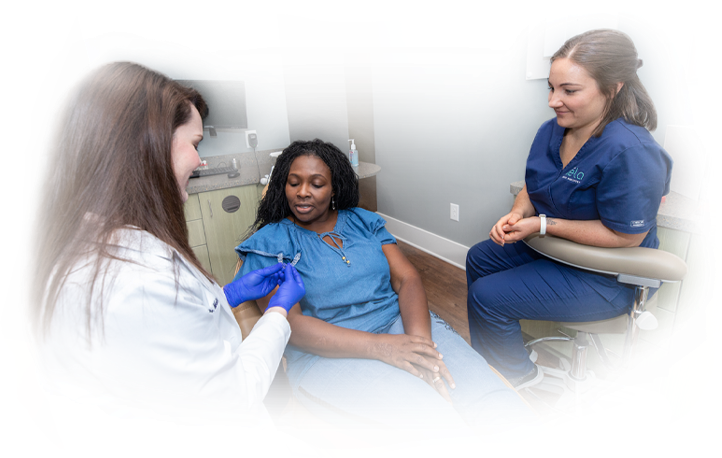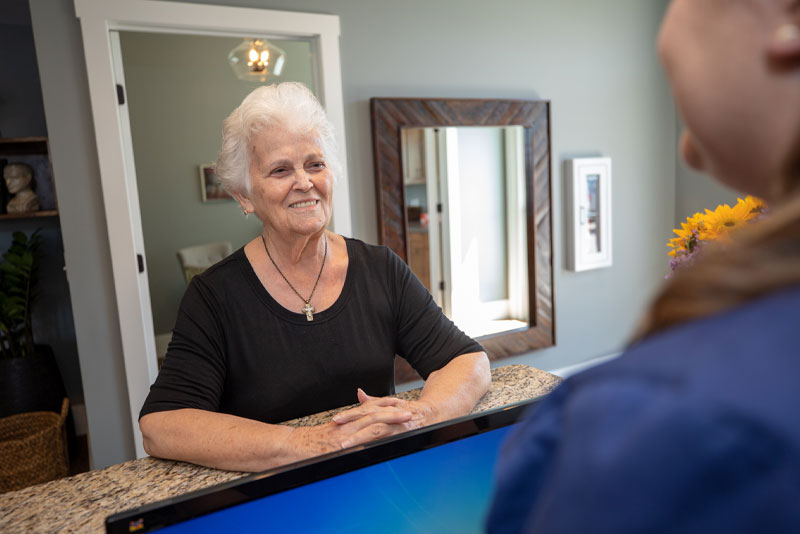
Feel Relaxed and Confident During Your Dental Care
Oral Sedation Dentistry Services in Seven Fields & Oakdale, PA
Dental anxiety is a profound psychological barrier that prevents countless individuals from maintaining optimal oral health. The fear and stress associated with dental procedures can lead to avoidance, potentially resulting in serious long-term dental complications. Advanced Dentistry Ameredes & Associates recognizes the deep-seated nature of dental phobias and offers a compassionate solution through oral sedation dentistry. Managing anxiety during a dental appointment is crucial, and oral sedation can help ensure a more relaxed experience.
Our Pittsburgh sedation dentists are dedicated to transforming dental experiences for patients who struggle with anxiety, fear, or heightened sensitivity during dental treatments. We provide comprehensive, patient-centered care that prioritizes physical and emotional comfort and serves the communities of Seven Fields, Oakdale, Cranberry, Bridgeville, and Canonsburg.
To discover how oral-conscious sedation dentistry can help you achieve a stress-free dental experience, get in touch with our Pittsburgh dental practice. Contact our Seven Fields office at 724-776-4560 or contact our Oakdale office at 412-788-6300.
What Is Oral Conscious Sedation?
Oral conscious sedation is an advanced pharmacological approach to managing dental anxiety and enhancing patient comfort. This sophisticated sedation dentistry technique involves administering carefully selected medications that induce a state of deep relaxation while maintaining the patient’s ability to respond to verbal commands and remain conscious throughout the procedure.
Unlike general anesthesia, oral conscious sedation is a conscious sedation dentistry technique that allows patients to remain aware of their surroundings while experiencing significantly reduced anxiety and heightened pain tolerance. The primary goal of oral conscious sedation is to create a comfortable, stress-free environment that enables patients to receive necessary dental care without psychological distress.

Neurobiological Mechanism of Oral Sedation Dentistry
The effectiveness of oral sedation dentistry stems from its complex interaction with the human nervous system. These medications primarily target specific neurotransmitter receptors, particularly GABA (gamma-aminobutyric acid) receptors in the brain, which play a crucial role in modulating anxiety and stress responses.
Benefits of Oral Sedation Dentistry
Oral sedation dentistry utilizes medications, typically from the benzodiazepine family, to help patients relax during dental procedures. By binding to GABA receptors in the brain, these sedatives effectively reduce neuronal excitability, leading to several significant benefits for patients experiencing dental anxiety or discomfort.
For patients with extreme anxiety or undergoing extensive treatments, deep sedation may be used to ensure they remain in a state of unconsciousness, with vital signs closely monitored for safety.
Decreased Anxiety and Fear Responses
One of the primary advantages of oral sedation dentistry is its ability to alleviate anxiety. Many individuals experience heightened anxiety when anticipating dental visits, which can prevent them from seeking necessary care.
Oral sedatives create a calming effect that allows patients to undergo dental procedures with significantly reduced fear and stress levels. This anxiety reduction not only improves the immediate experience but also encourages more regular dental visits in the future, ultimately promoting better oral health.
Enhanced Emotional Regulation
Oral sedation also contributes to improved emotional regulation. Patients often report feeling more at ease and able to manage their emotions during dental procedures. This emotional stability is crucial for individuals who may have previously experienced panic or distress in similar situations. By fostering a sense of calm, sedation dentistry helps patients maintain a more positive outlook toward dental care.
Reduced Perception of Discomfort
The analgesic properties of oral sedatives play a vital role in pain management during dental procedures. While local anesthesia numbs specific areas, sedation dentistry further diminishes the patient’s overall perception of discomfort.
This combination allows for a more pleasant experience as patients are less aware of any potential pain or unpleasant sensations associated with dental work. Consequently, this can lead to a smoother procedure for both the dentist and the patient.
Mild Amnesic Effects
Another noteworthy benefit of oral sedation dentistry is its mild amnesic effect. Patients often have little to no recollection of the procedure itself, which can be particularly beneficial for those with a history of negative dental experiences.
This amnesia helps prevent the development of phobias related to dental visits, as patients are less likely to associate future appointments with past discomfort or anxiety. By minimizing memory retention of distressing details, oral sedation dentistry can help foster a more positive relationship with dental care over time.
Additional Benefits
In addition to the aforementioned advantages, oral sedation dentistry offers several other benefits:
- Reduction in Gag Reflex: Oral sedation dentistry can help suppress the gag reflex, making it easier for dentists to perform dental procedures without interruptions caused by involuntary reactions.
- Increased Efficiency: Dentists can work more quickly and effectively when patients are relaxed and cooperative, allowing for potentially complex dental procedures to be completed in fewer appointments.
- Safe and Non-invasive: Oral sedation is simple to administer in pill form and is generally safe when monitored by qualified professionals, making it an accessible option for many patients.
By addressing both psychological and physical barriers to dental care, oral sedation dentistry serves as an invaluable tool for enhancing patient comfort and compliance. This approach not only facilitates necessary treatments but also contributes to long-term improvements in oral health outcomes.

Types of Oral Sedatives
Our Pittsburgh sedation dentists carefully select oral sedatives based on each patient’s individual needs, medical history, and specific procedural requirements.
Benzodiazepines
Benzodiazepines are known for having the highest therapeutic index among sedation dentistry medications. They provide a rapid onset of anxiolytic effects, leading to comprehensive anxiety reduction. Common examples of benzodiazepines include diazepam, lorazepam, and triazolam.
Non-Benzodiazepine Sedatives
Non-benzodiazepine sedatives offer similar efficacy to benzodiazepines but may have potentially fewer side effects. These medications also carry a lower risk of dependency and have an improved metabolic profile. Examples of non-benzodiazepine sedatives include zolpidem and zaleplon.
Antihistamine-Based Sedatives
Sedation methods in dental care include various options such as oral sedation, inhalation sedation, and intravenous sedation, each tailored to meet different patient needs. Antihistamine-based sedatives possess mild sedative properties and are particularly useful for patients who experience minimal anxiety. While they are lower in potency compared to primary sedative classes, they may provide additional benefits for patients with allergic conditions.
The Oral Conscious Sedation Process
1. Pre-Procedure Comprehensive Assessment
The process begins with a detailed review of the patient’s medical history. We evaluate current medications to identify any potential interactions or contraindications. Additionally, we assess the patient’s anxiety levels and conduct psychological and physiological screenings. This comprehensive assessment allows us to develop a personalized sedation strategy tailored to the patient’s specific needs.
2. Medication Administration
During medication administration, we calculate the precise dosage required for the patient. We select medications that are tailored to the individual’s needs and ensure proper timing for administration. Before proceeding, we educate the patient about the expected effects of the sedative to prepare them for the experience.
3. Procedural Monitoring
Throughout the procedure, we continuously track vital signs to ensure patient safety. Oxygen saturation is monitored closely, and we assess the patient’s condition in real-time. Our team is prepared to intervene immediately if any complications arise during the sedation.
4. Post-Procedure Recovery
After the procedure, we implement a gradual reversal of sedation to help the patient return to their normal state. Comprehensive post-sedation instructions are provided to ensure proper recovery at home. Patients must be accompanied by a responsible adult after the procedure, and we maintain follow-up communication to address any concerns or questions that may arise.

Pre-Procedure Instructions for Sedation Dentistry
To ensure a safe and successful sedation dentistry experience, patients should follow specific pre-procedure instructions provided by their dental office. These instructions typically include:
- Fasting: Patients may be advised to avoid food and drink for a certain period before the procedure to prevent complications.
- Medication Restrictions: Certain medications may need to be avoided before sedation. Patients should inform their dentist of all medications they are taking.
- Medical History Disclosure: It’s crucial to inform the dentist of any medical conditions or allergies to tailor the sedation plan accordingly.
- Accompaniment: Patients must arrange for a responsible adult to accompany them to and from the dental office, as they may feel drowsy or disoriented after sedation.
By adhering to these pre-procedure instructions, patients can help ensure their safety and comfort during sedation dentistry, leading to a more positive and effective dental experience.
Potential Risks and Considerations
While oral conscious sedation is generally considered safe, there are potential risks and side effects that patients should be aware of:
Mild Side Effects
- Temporary Drowsiness: Patients may experience drowsiness that can last for several hours after the procedure, affecting their ability to perform tasks that require full alertness.
- Transient Dizziness: Some individuals may feel dizzy or lightheaded during or after sedation, which can impact balance and coordination.
- Minimal Nausea: Mild nausea is a possible side effect, although it is typically short-lived and resolves quickly.
- Short-Term Cognitive Blunting: Patients might experience temporary cognitive blunting, which can manifest as difficulty concentrating or slower reaction times.
Special Population Considerations
Certain populations may require additional considerations when undergoing oral conscious sedation:
- Cardiovascular Disease Patients: Those with pre-existing cardiovascular conditions may need careful monitoring and adjustments to sedation protocols to ensure safety.
- Respiratory Condition Management: Patients with respiratory issues must be evaluated for their ability to tolerate sedation, as it can affect breathing.
- Sleep Apnea Considerations: Individuals with sleep apnea may require special precautions to prevent airway obstruction during sedation.
- Geriatric Patient Protocols: Older adults often have different physiological responses to sedatives, necessitating tailored approaches to minimize risks.
- Special Needs Patient Accommodations: Patients with special needs may require additional support and modified sedation strategies to ensure a safe and comfortable experience.
Insurance and Financial Considerations
The cost of oral sedation typically ranges from $150 to $500, depending on factors such as the complexity of the procedure and the duration of sedation required. Insurance coverage for oral sedation varies widely; many plans offer partial reimbursement for medically necessary sedation. However, it’s important to note that some insurance providers categorize sedation as a non-essential service, which may result in limited coverage.
Patients are encouraged to check with their insurance carrier for specific details regarding their coverage options and any potential out-of-pocket expenses. Additionally, many dental practices offer financing options or payment plans to help manage costs effectively.

Frequently Asked Questions
Oral conscious sedation provides a remarkable pain management experience that transcends traditional anxiety control. Patients typically report minimal to no pain perception during dental procedures.
The medication’s neurological effects create a unique state of relaxed awareness where discomfort is significantly diminished. While slight sensations might be perceived, they are often immediately forgotten due to the sedative’s amnesic properties, ensuring a comfortable and stress-free dental experience.
The duration of oral sedation’s effects varies based on multiple physiological factors, including medication type, patient metabolism, and individual response. Generally, sedative effects persist between two to eight hours post-dental procedure. Patients may experience a gradual reduction in sedation levels, accompanied by mild amnesia regarding procedural details. Our Pittsburgh sedation dentists provide comprehensive post-sedation guidelines to ensure patient safety during the recovery period.
Oral sedation is a versatile technique with broad applicability, but individual patient suitability requires thorough medical evaluation. While generally safe for most patients, certain conditions may necessitate alternative approaches.
Our sedation dentists conduct comprehensive pre-procedure assessments, considering factors like medical history, current medications, age, and overall health status. This personalized approach ensures that oral sedation dentistry is not only effective but also maintains the highest standards of patient safety.
Determining whether oral sedation is appropriate involves a thorough evaluation by a qualified dentist. Factors such as medical history, current medications, anxiety levels, and overall health will be assessed. Patients with specific conditions, such as cardiovascular or respiratory issues, may require special considerations. A personalized consultation will help identify the best sedation options tailored to individual needs.
Schedule Your Oral Sedation Consultation, Call Today!
Serving Cranberry, Bridgeville, Canonsburg, and surrounding Pennsylvania communities, Advanced Dentistry Ameredes & Associates is committed to transforming dental experiences through compassionate, advanced oral sedation techniques.
Contact our Seven Fields dental office at 724-776-4560 or our Oakdale dental office at 412-788-6300 to schedule your personalized oral sedation dentistry consultation today.

